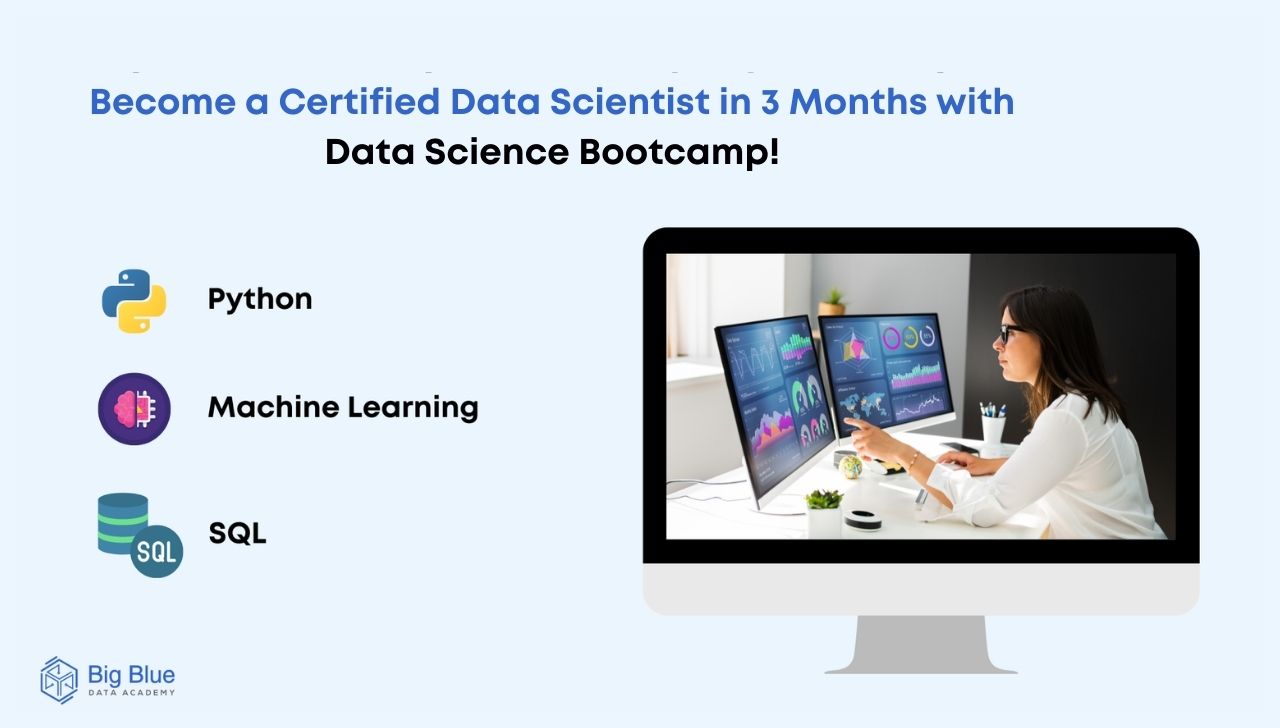How to become Data Scientist?
Data Scientists work with large amounts of data and have the knowledge and skills to extract valuable insights. They can combine technical and analytical skills with business thinking and effective communication, and they can analyze and leverage the data. Data Scientists ask the right questions and clearly communicate results – even to an audience unfamiliar with algorithms and analytical models. If all that sounds exciting to you, here are three pathways enabling you to become a Data Scientist:
Massive Open Online Courses (MOOC)
University degree or certificate
Data Science Bootcamp
In this post, we will compare the three options based on:
Cost
Duration and flexibility
Guidance and support for students
Success rate in finding employment after the program
.jpg)
Massive Open Online Courses – MOOCs
MOOCs like EdX, Udemy, or Coursera, are provided at a low cost or even free. They are very flexible as you can log in whenever you want, but there is no interaction with a professor that can guide you and answer your questions. If you want to clarify something, you might have to spend a lot of time looking for the answer. However, the biggest disadvantage of these programs is that they’re not well structured. Usually, they offer excerpts of comprehensive Data Science programs (not available at this price range) and lack the benefits of a well-structured program.
University studies
You can also learn Data Science at a University or an accredited organization such as the National Centre for Scientific Research “Demokritos”. These programs are well structured and, of course, cost much more than MOOCs, but you get support from a professor and usually a teaching assistant. However, they last from 12 to 24 months and don’t really provide a connection to the industry. They offer excellent academic knowledge; however, many employers are not happy with the practical skills of the graduates since they lack business thinking.
Data Science Bootcamp
Bootcamps, on the other hand, last 3 to 6 months, are flexible, offer support from a professor and a teaching assistant, and are connected to the industry. As a result, bootcamp graduates are sought after by employers and start their careers soon after graduation. Here you can read the career stories of Bootcamp alumni who now work for big data firms. Keep in mind, however, that bootcamps offer intensive courses and require spending long hours practicing with data and solving real industry problems. On the plus side, a bootcamp will also sharpen your business thinking and soft skills such as teamwork and presentation skills.

Last words: mentoring and continuous learning
As a young Data Scientist, keep in mind that having a mentor can seriously boost your career. According to studies, professionals who have a mentor are five times more successful compared to those who never had one. It's very important to be a member of a Data science network that can support you in your career.
Insider Tip: If you want to be Data Scientist, never stop learning new methods in Machine Learning and Artificial Intelligence. Keep asking questions and keep sharing your passion for Big Data!

.jpg)
.jpg)